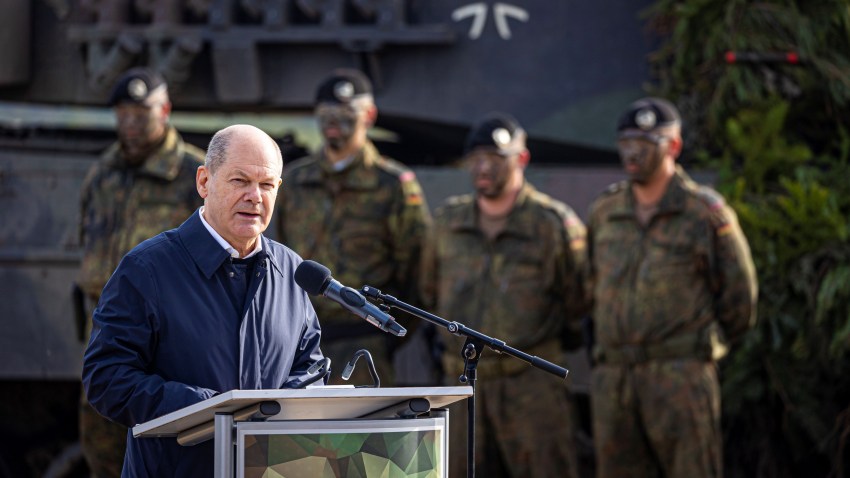“Putin’s war marks a turning point,” German Chancellor Olaf Scholz declared in an address to the Bundestag on Feb. 27, 2022, “and that goes for our foreign policy, too.” Scholz’s remarks, delivered three days after Russia’s invasion of Ukraine began, not only signaled a sea change in German strategic thinking, but also served as a rebuke to the assumptions underpinning the foreign policy approach of his predecessor, Angela Merkel.
Despite being Europe’s economic powerhouse, Germany had long been reluctant to take a leadership role in European security affairs, in large part due to the specter of its legacy from World War II, which still haunts German politics. It appeared at first glance that the Russia-Ukraine conflict had forced Berlin’s hand on this issue. But a year after Scholz’s Zeitenwende, or turning point, speech, have Germany’s actions matched its initial rhetoric?
Progress has certainly been achieved on multiple fronts. But the lingering concern moving forward is whether Scholz has the political capital—and courage—to break away from the long-standing structural incentives that have guided Germany’s security posture since reunification.

